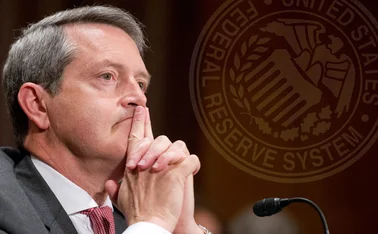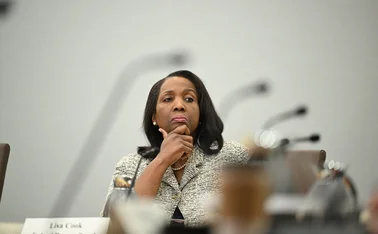
Former BoE staffer sets out vision for Bank's reorganisation

Mark Carney should devolve more responsibility to his deputy governors at the Bank of England, including letting the deputy in charge of monetary policy, currently Charlie Bean, chair the Monetary Policy Committee (MPC), in the light of the expansion of the bank's responsibilities in recent years, according to an article written by a former Bank of England official in the forthcoming edition of the Central Banking journal.
Richard Barwell, currently a senior European economist at RBS, also argues for a re-orientation of the work of the Financial Stability Directorate (FSD) now that micro-prudential regulation has been brought inside the bank, and for the creation of a new directorate of economics to house economists serving both the bank's monetary and financial policy committees.
The Bank of England is currently undergoing a strategic review, being carried out by management consultancy firm McKinsey, which is expected to produce a new ‘strategic plan' for the bank later this year. The most recent minutes from the Court of the Bank of England disclosed that "the overarching requirement was to clarify the bank's mission, to identify the key areas for investment and to pin down the bank's requirements for talent and recurrent budget".
In his piece for the Central Banking journal, Barwell said he does "not believe the bank has failed in its task and is therefore in urgent need of a root-and-branch reform. But I do believe that the excellent cadre of staff could be more efficiently deployed to achieve the bank's objectives."
He argues that the Bank of England's FSD needs reforming as a lot of its work overlaps with the Prudential Regulation Authority (PRA), the micro-prudential regulator with the Bank of England that took over from the now defunct, standalone Financial Services Authority (FSA).
Barwell argues there was "considerable overlap between the work agendas of the FSA and the Financial Stability (FS) directorate for perfectly sensible reasons", but that now "a more sensible division of labour might be for FS to spend less time thinking about micro-prudential issues, where it lacks the information, experience and resources to match the work done by the PRA". For its part, he argues, "the PRA should probably spend less time thinking about macro-prudential issues".
For this split to be undertaken effectively, however, Barwell says the bank must move "as fast as possible to a clear statement of the objective of macro-prudential policy".
There is also, Barwell says, "a powerful case for creating an ‘Economics Directorate'", which would mean experts in particular fields, such as financial markets, "would be housed in one place rather than being separated from each other both in terms of their location and the policy interest in their work".
Staff in the Economics Directorate, Barwell suggests, "would serve two mistresses – the MPC and the Financial Policy Committee (FPC) – rather than one, which means both committees should receive the full benefit of being briefed by the experts in a particular field".
Chief economist role recast
The role of chief economist would be recast. As Barwell points out, the Bank of England may not always be able to find capable economists who also have a talent for management, as the position currently requires.
As well as heading up the Economics Directorate, Barwell's vision also sees the chief economist sitting at the top of a new research department, "responsible for producing cutting-edge research relevant to all areas of central banking".
Developing a research department would, Barwell says, enhance the reputation of the bank and also provide strong academic researchers with a career path at the bank.
The chief economist should, he said, sit on both the MPC and the FPC. These committees, as well as the PRA, could be chaired by the deputy governor in charge of that area, freeing up the governor to take a longer, more strategic view.
The MPC would also gain a majority of external members under Barwell's proposals. The executive directors of monetary affairs and of markets would lose their positions, with their roles becoming "purely management", and with the chief economist moving on to the MPC, one space is freed up for another external member.
The Bank of England released the results of its 'Value for Money' review at the end of last month, at which point it said only that the conclusions of the strategic review would be published "in due course". McKinsey is, according to chief operating officer Charlotte Hogg, "facilitating" the review which is "being run by the bank".
"McKinsey's role was not to set the strategy," the BoE Court minutes say, "though they were providing input from their experience of other similar organisations and arranging visits to some."
Only users who have a paid subscription or are part of a corporate subscription are able to print or copy content.
To access these options, along with all other subscription benefits, please contact info@centralbanking.com or view our subscription options here: www.centralbanking.com/subscriptions
You are currently unable to print this content. Please contact info@centralbanking.com to find out more.
You are currently unable to copy this content. Please contact info@centralbanking.com to find out more.
Copyright Infopro Digital Limited. All rights reserved.
As outlined in our terms and conditions, https://www.infopro-digital.com/terms-and-conditions/subscriptions/ (point 2.4), printing is limited to a single copy.
If you would like to purchase additional rights please email info@centralbanking.com
Copyright Infopro Digital Limited. All rights reserved.
You may share this content using our article tools. As outlined in our terms and conditions, https://www.infopro-digital.com/terms-and-conditions/subscriptions/ (clause 2.4), an Authorised User may only make one copy of the materials for their own personal use. You must also comply with the restrictions in clause 2.5.
If you would like to purchase additional rights please email info@centralbanking.com







